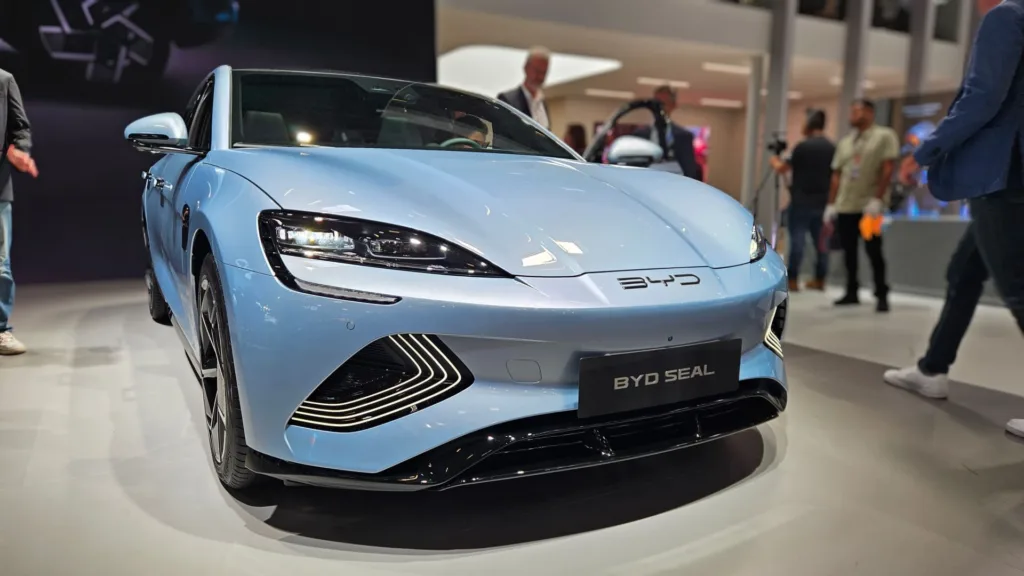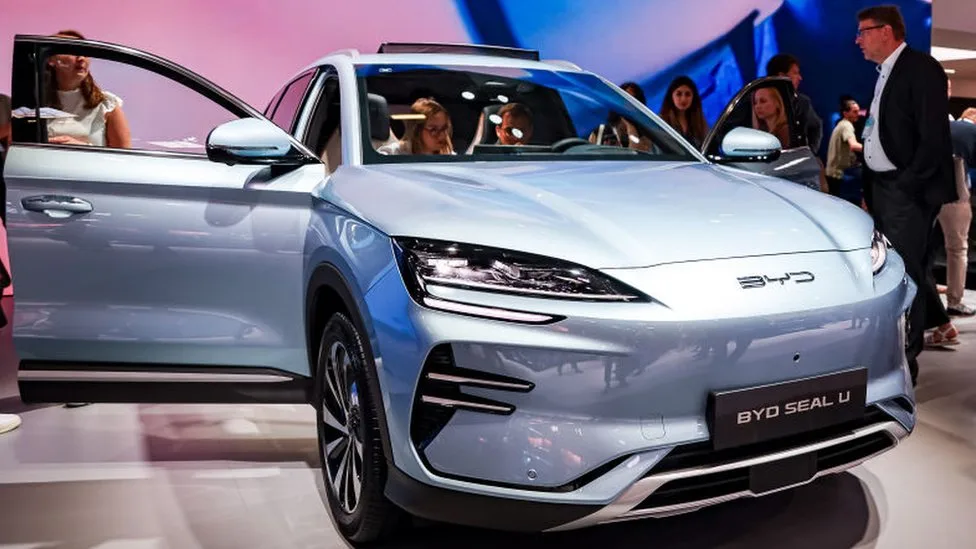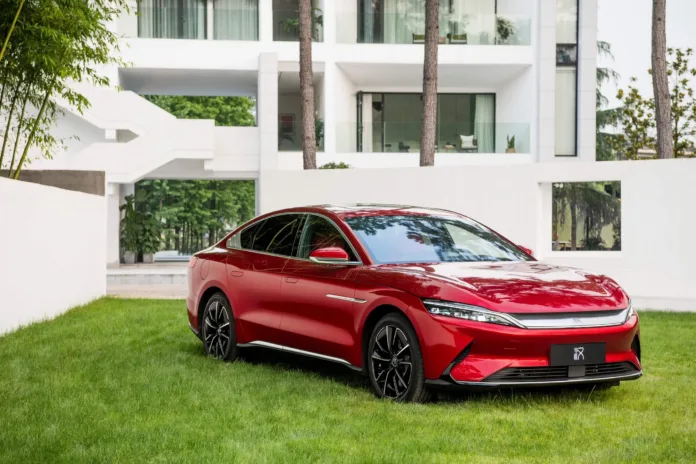BYD’s Sales Soar in 2024: Chinese EV Giant Breaks Records Amid Global Expansion
BYD, the leading Chinese electric vehicle (EV) and battery manufacturer, has reported a remarkable 41.3% surge in vehicle sales in 2024, solidifying its position as a global EV powerhouse. With its growing international presence and record-breaking sales figures, BYD continues to dominate the EV market despite facing challenges from trade disputes and rising tariffs.
Here’s a closer look at BYD’s stellar performance in 2024 and what it means for the global EV industry.

BYD’s Record-Breaking Sales in 2024
BYD sold an impressive 4,272,145 vehicles in 2024, a significant jump from the 3,024,417 units sold in 2023. This growth highlights the company’s ability to expand its footprint both domestically and internationally.
Key Highlights
- December 2024 Sales: BYD sold 57,154 vehicles outside of China, marking a 58.3% increase compared to December 2023.
- Global Leader: BYD remains the largest EV manufacturer in China, the world’s biggest automotive market.
- Quarterly Revenue Milestone: In Q3 2024, BYD’s revenue surpassed that of global rival Tesla for the first time, showcasing its growing dominance in the EV sector.
BYD’s Global Expansion: Building Dreams Beyond China
BYD, which operates under the slogan “Build Your Dreams”, has been aggressively expanding its presence in international markets. The company’s vehicles are now being exported to regions across Asia, Europe, and Latin America, with a growing focus on electric buses, passenger cars, and commercial vehicles.
Export Growth
BYD’s December export figures reflect its increasing success in global markets, with over 57,000 vehicles shipped outside of China in a single month. This growth is fueled by:
- Affordable EV Models: BYD’s competitive pricing and advanced technology make its vehicles attractive to international buyers.
- Diverse Product Lineup: From compact EVs to luxury electric sedans and buses, BYD caters to a wide range of consumer needs.


Challenges in Global Markets: Trade Disputes and Tariffs
Despite its success, BYD’s global expansion hasn’t been without hurdles. The company faces mounting challenges from trade disputes and protectionist policies in key markets.
European Union Tariffs
- In October 2024, the European Union (EU) imposed additional tariffs of up to 35.3% on Chinese EVs, citing concerns over unfair competition due to Beijing’s subsidies.
- The EU claims that extensive state support for Chinese automakers, including BYD, has undercut local competitors.
North American Tariffs
- Earlier in 2024, the United States and Canada raised customs duties on Chinese EVs to a staggering 100%, further complicating BYD’s efforts to penetrate these markets.
- In response, Beijing has vowed to “take all necessary measures” to protect its automakers’ interests.
The Role of Subsidies in BYD’s Success
BYD’s rapid growth in its home market has been supported by generous subsidies from the Chinese government, which have helped the company scale production and reduce costs. However, these subsidies have also drawn criticism from international competitors and regulators.
Impact on Global Competition
- Subsidies have allowed BYD to offer EVs at lower prices, making them highly competitive in international markets.
- However, this has led to accusations of unfair trade practices, particularly in Europe and North America, where local automakers struggle to compete on price.
Global EV Market Trends in 2024
BYD’s success comes at a time when the global EV market is experiencing unprecedented growth.
Record-Breaking Sales
- According to industry research firm Rho Motion, global EV sales hit a record 1.8 million units in November 2024.
- China’s Dominance: Over two-thirds of the EVs sold in November were in China, highlighting the country’s central role in the global EV market.
Regional Disparities
- While China’s EV market continues to grow, Europe’s EV sales shrank by 3% in 2024, reflecting uneven growth across regions.
- Despite these challenges, experts predict continued momentum for EV adoption worldwide, driven by advancements in technology and increasing environmental awareness.
What’s Next for BYD?
As BYD enters 2025, the company is poised to build on its success with ambitious plans for further expansion and innovation.
Key Focus Areas
- Strengthening Global Presence: BYD is expected to continue expanding into new markets, leveraging its competitive pricing and diverse product lineup.
- Innovation in EV Technology: The company is investing heavily in battery technology and autonomous driving systems to stay ahead of the competition.
- Navigating Trade Challenges: BYD will need to adapt to rising tariffs and trade restrictions while maintaining its growth trajectory.
BYD’s Rise as a Global EV Leader
BYD’s 41.3% sales growth in 2024 is a testament to its ability to dominate both domestic and international markets. Despite facing challenges from trade disputes and tariffs, the company’s innovative approach and competitive pricing have made it a force to be reckoned with in the global EV industry.
As the world transitions to sustainable mobility, BYD’s success underscores the growing demand for electric vehicles and the pivotal role Chinese automakers are playing in shaping the future of transportation.
With 2025 just beginning, all eyes are on BYD to see how it navigates the challenges ahead and continues to “Build Your Dreams” on a global scale.


